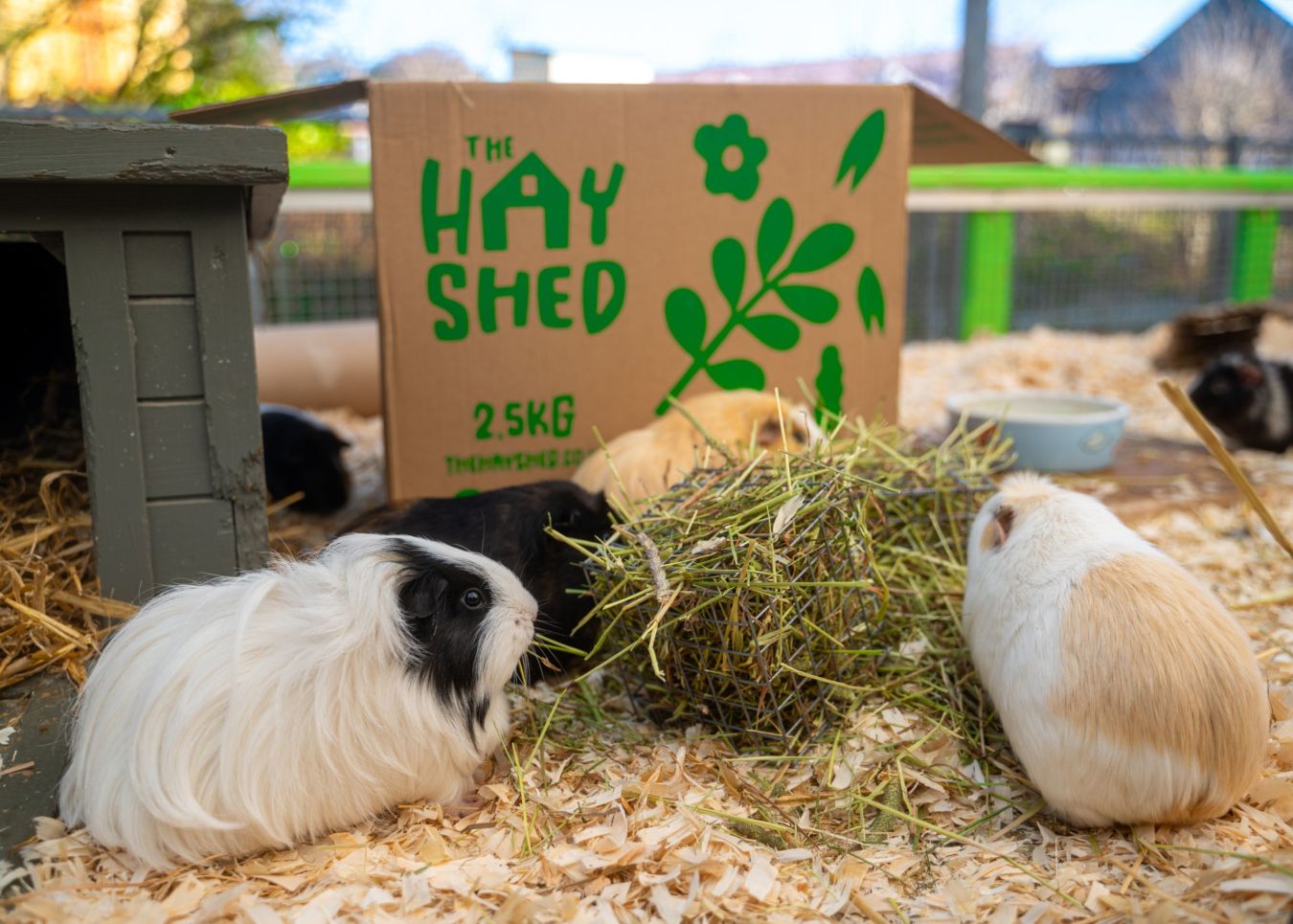Small pets are not just adorable companions; they are intelligent beings with a natural instinct for seeking nutrient-dense foods. In the wild, they spend hours foraging for the best sustenance to last them days whilst evading prey. Fortunately, in a family home, your small pets enjoy the luxury of having hay delivered right to their doorstep!
As devoted pet parents, it can be disheartening when our furry companions become a bit pernickety with their meals. In this guide, we explore ways to make mealtime an exciting and enjoyable experience for your beloved small pets.
Make Their Meals Playful
Transform mealtime into a game by incorporating playful elements. Try hiding their food in pet-friendly toys such as willow balls or even a homemade toy of a hanging toilet paper roll. Pets will have to work at getting hay out providing stimulation at mealtimes.
Add a Sprinkle of Excitement
Variety is the spice of life, and the same holds true for your small pets’ meals. Consider adding small pet-safe herbs, such as chamomile and dandelion, or a handful of leafy greens to their hay. This simple addition sparks interest and brings an element of excitement to their daily fare.
Explore Different Types of Hay
While Timothy Hay is a staple and our most popular choice, introducing different types of hay can be a game-changer.
Meadow Hay: Packed with a variety of seed heads, Meadow Hay is bursting with flavour.
Rye Grass Hay: Sweet and stalky, Rye Grass Hay offers diverse textures and tastes.
Oat Hay: Full of tasty oat heads that provide extra protein and fibre, Oat Hay offers variety from your pet’s standard green grass hay.
Gradually introduce a new type of hay to avoid overwhelming their system. This not only adds a fun twist to their diet but also ensures a smooth transition to a variety of flavours.
Why not let your small pet try out a new kind of premium hay with our taster hay boxes?
A Word of Caution:
If your small pet starts refusing food, including their favourites, it’s essential to seek veterinary advice promptly. Refusal to eat could be a sign of an underlying health issue, and professional guidance is crucial for their well-being.
21 March 2024
